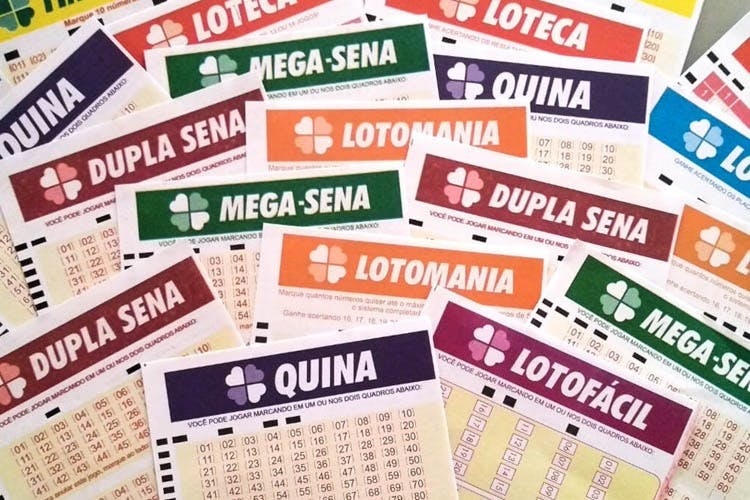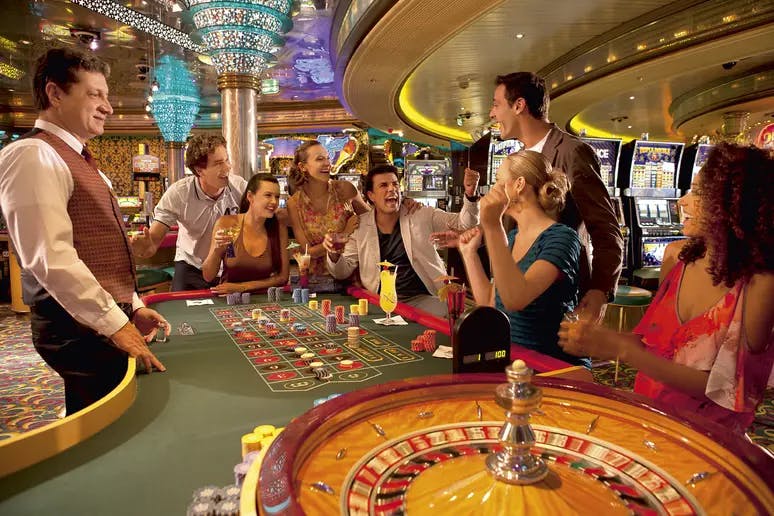Traditional Lotteries and Other Gambling Games: A Competition for Players' Hearts
Comparison between Traditional Lotteries, Casinos, and Sports Betting in Popularity, Regulation, and Economic Impact
The Lottery House
tags:
lottery
bet

Introduction:
Since time immemorial, the human desire for luck and fortune has been satisfied through a variety of gambling games. In the contemporary scene, traditional lotteries directly compete with other types of gambling games such as casinos and sports betting for players' preferences worldwide. This article explores this competition, analyzing crucial aspects such as popularity among players, the rigor of governmental regulation, and the economic impact generated by each gambling modality.
Traditional Lotteries: A Global Tradition

Lotteries have a long history dating back centuries, being one of the most popular forms of gambling globally. The appeal of lotteries lies in the simplicity of their rules and the promise of life-changing prizes. Countries like the United States, Brazil, Spain, and Australia have their own national lotteries, each with unique characteristics but all sharing the common goal of distributing significant prizes to their participants.
Traditional lotteries stand out for their wide acceptance across different age groups and social classes. They are seen not only as a form of entertainment but also as an opportunity for life-changing moments for players. For example, games like Mega Millions and Powerball in the US often offer prizes that exceed hundreds of millions of dollars, capturing the imagination of millions of Americans who purchase tickets hoping to become millionaires overnight.
Casinos: The Glamour and Allure of Gambling

In contrast, casinos represent a different environment within the gambling industry. With their bright lights, elegant gaming tables, and a variety of entertainment options, casinos are home to games like blackjack, roulette, poker, and slot machines. They offer an immersive experience that goes beyond simply purchasing a lottery ticket, providing players with the thrill of making strategic decisions and competing directly against others or against the house.
Casinos, especially those located in tourist destinations like Las Vegas, Macau, and Monte Carlo, have become icons of gambling culture. They attract not only regular gamblers but also tourists seeking a unique entertainment experience. The variety of games and the potential for substantial winnings in a short period distinguish casinos from traditional lotteries, which rely solely on random draws.
Sports Betting: Exponential Growth in the Modern World

In recent years, sports betting has emerged as a dominant force in the gambling world. What started as a pastime has transformed into a multibillion-dollar global industry, driven by the availability of online platforms and the growing interest of sports fans. Sports betting allows participants not only to watch their favorite team's games but also to have a direct financial stake in their performance.
Digital platforms have facilitated access to sports betting, enabling bettors to place their wagers from anywhere, at any time. This has democratized the market, expanding its player base beyond traditional gambling enthusiasts. Events like the FIFA World Cup, the Super Bowl, and the Olympics now serve as global opportunities for betting, attracting massive participation and generating huge volumes of financial transactions.
Regulation: Balancing Control and Freedom

A crucial aspect in comparing lotteries, casinos, and sports betting is governmental regulation. Traditional lotteries are generally operated by government bodies that enforce strict rules to ensure the integrity of draws and fair distribution of prizes. This includes regular audits, transparency policies, and the use of advanced technology to prevent fraud.
Casinos, on the other hand, are often subject to complex regulations that vary significantly from country to country. In jurisdictions like Las Vegas, physical and online casinos are closely regulated to ensure they operate fairly and safely. Regulation covers everything from player safety to compliance with anti-money laundering standards and consumer protection.
Sports betting faces similar challenges in terms of regulation. Many countries are legalizing and regulating sports betting to ensure it is fair, transparent, and safe for all involved. This includes protecting personal data, preventing match-fixing, and promoting responsible gambling among participants.
Economic Impact: Contributions to the Global Economy

In terms of economic impact, all forms of gambling have a significant role to play. Traditional lotteries, despite being operated for profit, often dedicate a substantial portion of their revenues to social causes such as education, culture, sports, and public health. This creates a cycle of reinvestment in the community that benefits a wide range of beneficiaries.
Casinos, in turn, are important employers and revenue generators for local economies where they are located. They not only employ personnel in roles ranging from dealers to security guards and managers but also attract tourists who spend money on hotels, restaurants, and other activities. In destinations like Macau, casinos are the primary economic engine, driving growth and urban development.
Sports betting has a different economic impact, often concentrated in the technology and media industries. Digital sports betting platforms employ software engineers, data analysts, and digital marketing experts to sustain their global operations. Additionally, media partners and sports leagues benefit from increased exposure and ongoing interest generated by betting during large-scale sports events.
Conclusion:
In conclusion, the competition between traditional lotteries, casinos, and sports betting reflects the diversity of preferences and expectations among modern players. While lotteries continue to attract millions with the promise of large prizes and social contributions, casinos offer an immersive and dynamic experience appealing to those seeking adrenaline and strategy. On the other hand, sports betting has captured the imagination of a new generation of sports enthusiasts, turning sports events into lucrative opportunities for financial participation.
The positive economic impact is undeniable, contributing to economic growth and social well-being in many parts of the world. As technology advances and consumer preferences evolve, the competition between these gambling modalities is likely to continue shaping the global gambling landscape, offering diversified options for players of all types.
Through this analysis, it is clear that lotteries, casinos, and sports betting are not just forms of entertainment but also significant players in the global economy, each contributing uniquely to the social and economic fabric of modern societies.